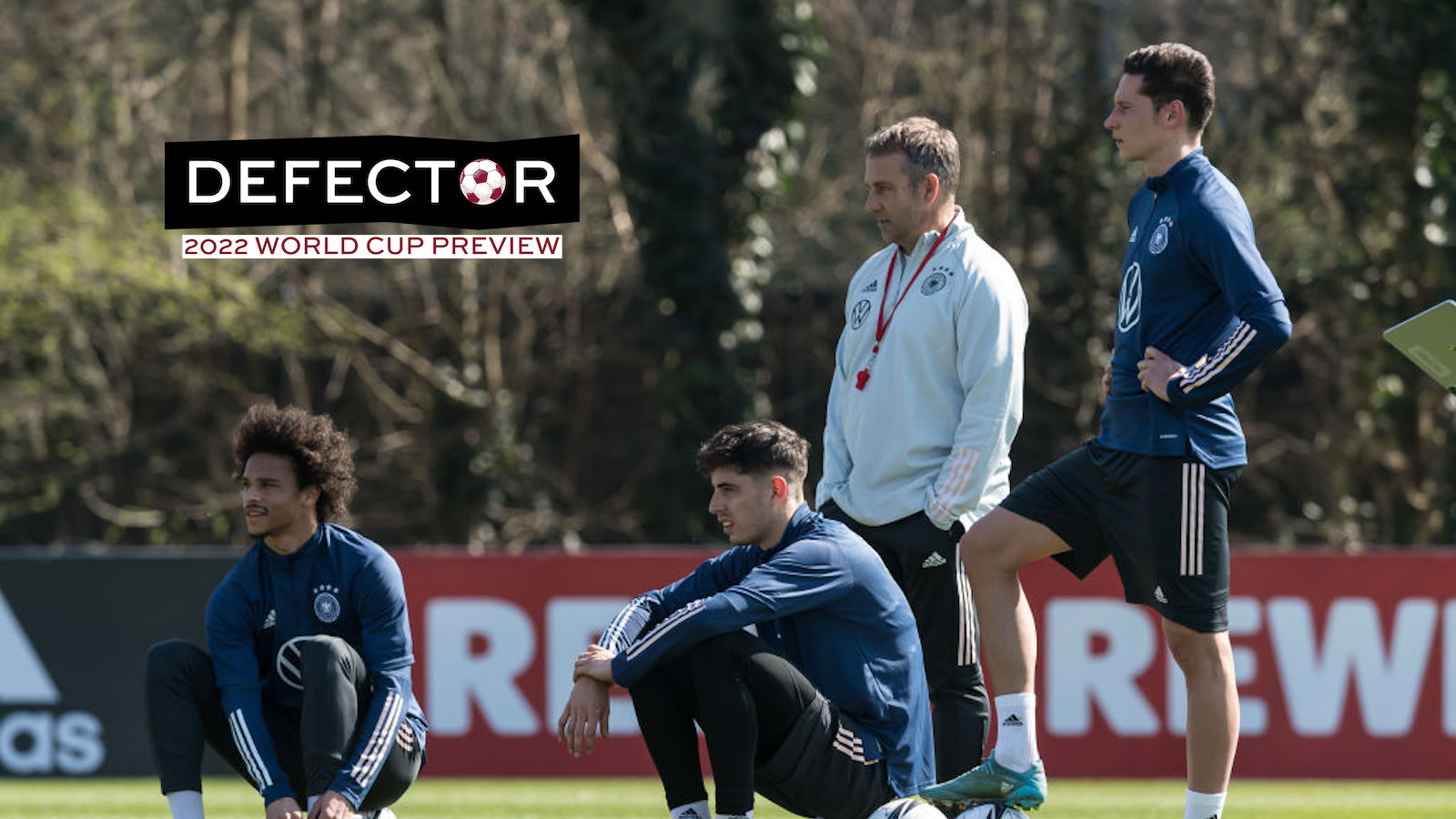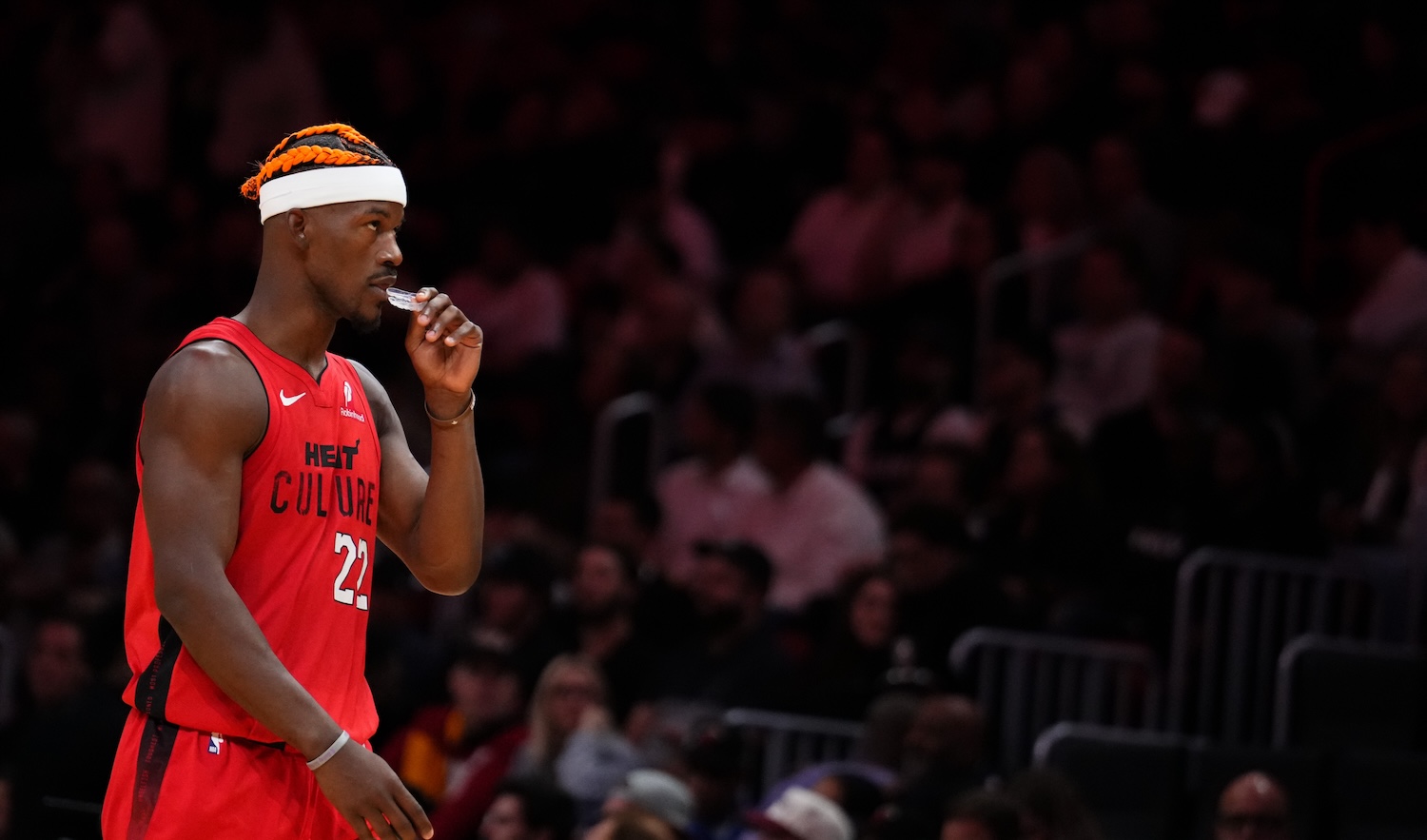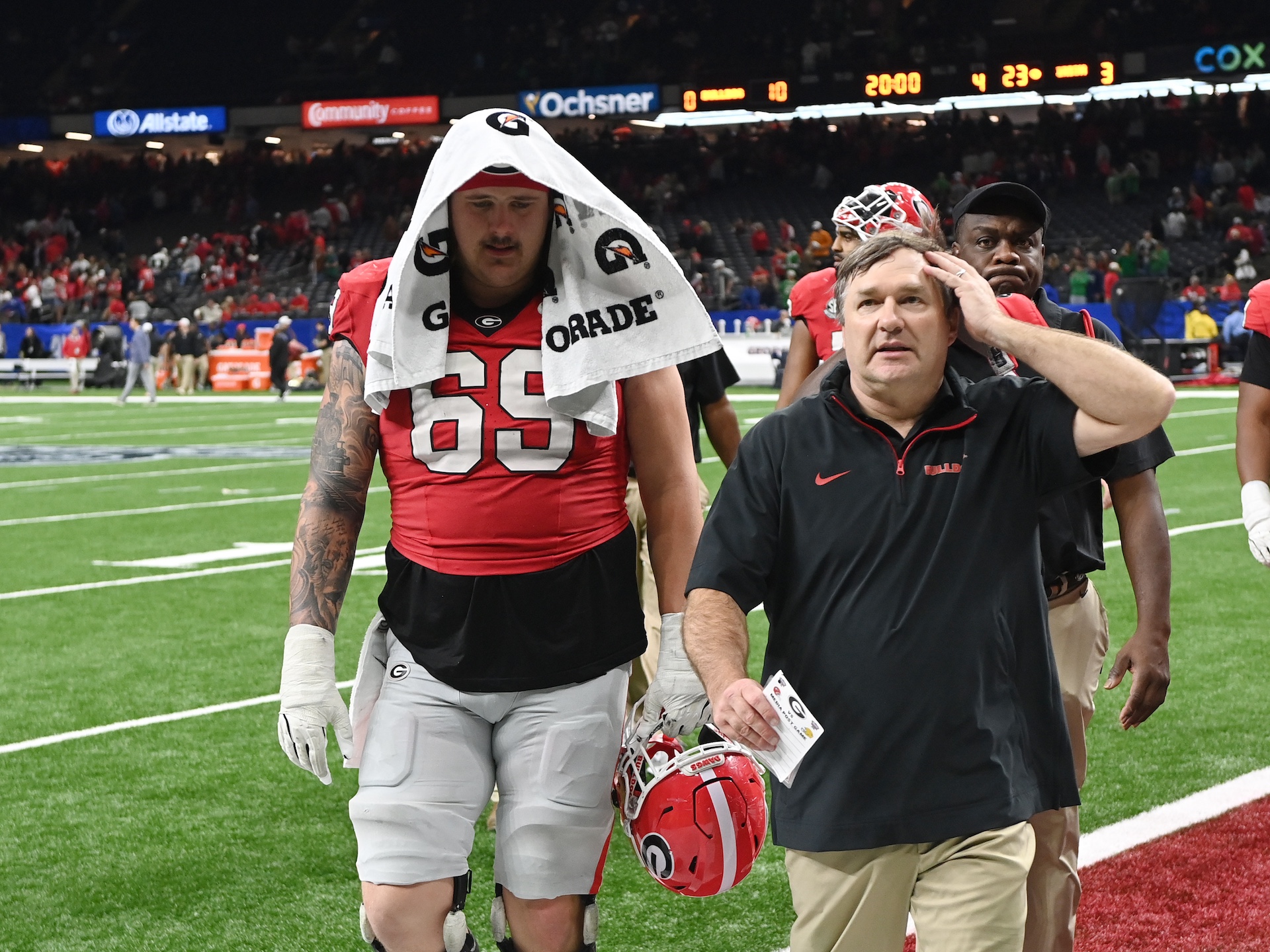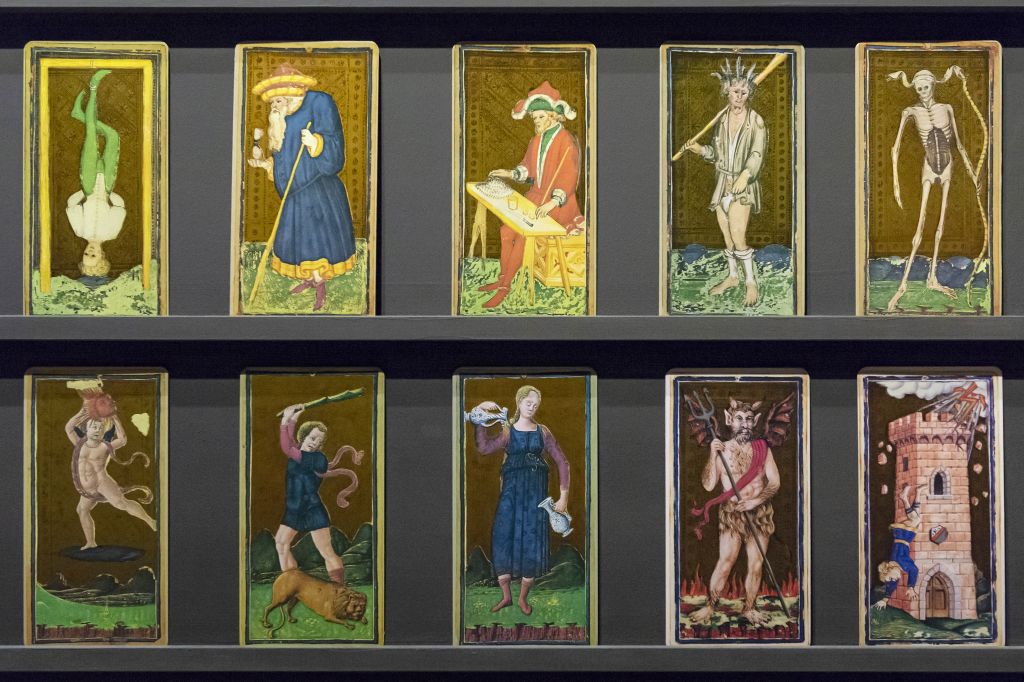It’s almost time for the 2022 World Cup. To help get you ready, we will be providing you with precious information about every team in the tournament. You can read all of our World Cup previews here.
As the summer of 2014 came to an end, the soccer world was in Germany's grip. The men's national team had just won the World Cup, and along the way had authored one of the most memorable victories in the history of international competition. Facing host nation Brazil in the semifinal, Germany physically and psychologically dominated their opponents through the course of a 7–1 victory. The Germans were up 5–0 within 28 minutes, and if you didn't happen to watch this game live it may be difficult to understand just how shocking and cruel the whole spectacle was. Brazil just kept making awful mistakes, Germany just kept punishing them with goals, and the broadcast just kept showing weeping women, children, and old people in the crowd.
People called the German national team Die Mannschaft (The Team) back then, and it was a fitting nickname. Here was the rare national team that had actually grown into something greater than a collection of individual talents. A deep roster of stars led by the likes of Toni Kroos, Mesut Özil, Thomas Müller, and Manuel Neuer had knit itself into a dominant and imperious side. While other national teams engaged in the eternal struggle to find the right lineups, systems, and playing philosophies that would turn their crew of stars into something approaching an actual team, Die Mannschaft were off and running.
Germany slowed down to a jog a lot quicker than anyone expected. A loss in the semifinal at the 2016 Euros was no reason to panic, but the 2018 World Cup brought disaster: Germany dropped games to both Mexico and South Korea, and failed to advance to the knockout rounds while finishing dead last in the group. They at least made it to the round of 16 at the 2020 Euros, but were sent home from there through a 2–0 loss to England.
While it's true that Germany had to deal with many of the key players from that 2014 run aging out of the squad, there's really no good reason for Die Mannschaft to have fallen so quickly. Germany has maintained its production of good young players, the team was under the steady guidance of manager Joachim Löw, who first took the job way back in 2006, and stalwarts like Kroos and Müller were still good enough to anchor a successful national team. It's hard to pinpoint exactly what has gone wrong for Germany over the last eight years, but it's clear that something hasn't been working, and the federation itself came to that realization following the team's flop at the 2020 Euros.
Löw is outta there, and in his place is former Bayern Munich manager Hansi Flick, who will be tasked with getting the best out of a squad that is relatively stacked with both veteran and young talent. He also needs to establish a new identity for the national team. I mean that literally: This past summer, the German federation decided to stop actively promoting Die Mannschaft as a nickname because of the negative association it was starting to create among disillusioned fans. The good news for Germany is that there's no better place to define one's self than at the biggest sporting event in the world.
Who Is Their Main Guy?
If you've ever watched a Bayern Munich game, you have no doubt been struck by how physically dominant they can be. It's nice to think that skill and technical ability will win out more often than not in a game that derives so much value from its aesthetics, but Bayern is always around to provide a necessary reminder: all the pretty passing and dribbling in the world can't stop you from getting run over sometimes. Bayern doesn't beat teams as much as it flattens them, and it accomplishes this feat by deploying brawny and tenacious players all over the field who love nothing more than to hunt the ball down and press the life out of their opponents.
The guy who sits at the center of this tactical philosophy is Joshua Kimmich. The 27-year-old has spent most of his career playing for Bayern Munich, and in that time he's shown his ability to play at a world-class level both as both a fullback and a deep-lying midfielder. He can command the game from either position, and what makes him so great, aside from his versatility, is his tenacity. Kimmich plays soccer like a particularly angry bee. No opponent gets more than a half-second of peace on the ball before a buzzing Kimmich arrives to menace them, and more often than not he leaves them writhing on the ground while igniting a break in the other direction.
Plenty of defensive midfielders make good livings as rugged ball-winners, but where Kimmich outclasses the rest of them is in what he can do after he wins the ball. Once Kimmich gets the ball at his feet, all that redline aggression immediately gives way to creative playmaking, which allows Kimmich to seamlessly transition from stopping an attack into creating one. He's racked up 55 assists in his eight years at Bayern.
Kimmich will sit at the base of Germany's midfield at the World Cup, and he will have plenty of Bayern teammates to play passes to. If Flick allows Kimmich as much time on the ball and control over the game as possible, Germany will at the very least have a great platform to build from.
Who Is Their Main Scoring Guy?
You never want to hear that the main scoring guy for your national team is a formerly exciting starlet whose career is not only plateauing right when it should be peaking, but also seems to be developing a hardwired inability to consistently put the ball into the net. With that in mind, it's possible that more than a handful of German fans breathed a sigh of relief when they heard that striker Timo Werner, still trying to bounce back from an expensive and failed transfer to Chelsea, was ruled out for the World Cup due to injury. That feeling of relief may only have lasted for as long as it took to realize that Werner's minutes are likely to be soaked up by Kai Havertz, a formerly exciting starlet whose career is plateauing right when it should be peaking, who seems to be developing a hardwired inability to consistently put the ball into the net, and is still in the midst of an expensive and failing transfer to Chelsea.
I don't mean to make it sound like Havertz is a bad player. The exact opposite is true, and it may in fact be the breadth and depth of Havertz's skills that have worked to undermine his launch into superstardom. Havertz broke into the Bayer Leverkusen first team as a 17-year-old, and it didn't take long for him to become the most important player on the team. He scored 36 goals and tallied 21 assists while making 99 starts at Leverkusen, which was enough to get him sold to Chelsea as a 21-year-old for £75.8 million before the 2020–21 season.
Watching Havertz leaves one with the impression that he has the ability to be anything he wants on a soccer field. It's just as easy to imagine him dominating a game as a box-to-box midfielder as it is to envision him scoring 20 goals as a striker or spraying around assists as a No. 10. He's tall, quick, crafty, strong, and able to make the ball do whatever he wants it to do when it's at his feet. That sort of all-encompassing talent served him well at Leverkusen, a mid-table Bundesliga side where he was several orders of magnitude better than any of his teammates, and thus was granted the freedom to play loose and free. But that same set of characteristics has in some ways made it difficult for Havertz to really find his footing at Chelsea, where he has to share the field with a handful of other world-class players who all need to put their own set of fingerprints on each game. Now in his third season with Chelsea, it's still not really clear where Havertz best fits into the team. Should he be the striker? The primary creator from midfield? A false 9? A winger? A damn wingback???
The good news for Flick is that finding the answer to that specific set of questions isn't really his problem. All he needs to do is find a spot for Havertz in this German side where he can get the most out of him for a handful of games. His failure or success at achieving that goal will go a long way towards determining what happens to Germany at this World Cup.
Where’s The Beef?
Which teams or players does Germany not like? Do Germany's players like each other? We investigate Germany's potential enemies.
I wouldn't say that Hansi Flick has undeniable beef with any of the players he'll be coaching at the World Cup, but it wouldn't be all that surprising if a handful of them regard him a little suspiciously.
Flick was recently the instigator of some big-time Bundesliga drama when he huffily left his perch at Bayern Munich two years before his contract was set to run out. Flick was promoted from assistant manager to manager in November 2019 after Niko Kovac was shoved out the door. Flick did a good enough job as an interim manager that Bayern decided to give him the gig on a permanent basis, and he immediately led the team on an unimpeachable run of success. In his first full season in charge, Flick won the Bundesliga title, the Champions League title, and the German Cup, giving Bayern the second domestic treble in its history. And then, near the end of his second season in charge, while Bayern was sitting comfortably at the top of the league table, Flick announced publicly that he wished to leave the club at the end of the season. The team was not happy about this, and released a statement admonishing Flick for announcing his desire to leave before the end of the season.
Reports from the time indicated that Flick was at odds with Bayern sporting director Hasan Salihamidzic over disagreements about who the club should and shouldn't be trying to sign. This is an extremely common phenomenon at big clubs around the world, but most of the time these disagreements get settled through behind-the-scenes power struggles. Rarely does a manager make such a big stink while there are still games to play on the schedule.
So what does this beef between Flick and Salihamidzic have to do with the World Cup? Well, a number of players that Flick managed during his brief but successful period in charge at Bayern are on the national team, and it's possible that some of them still aren't feeling too great about the chaos Flick tossed them into. Bayern had to scramble to find a replacement for Flick, which resulted in them paying a reported €25 million to RB Leipzig in order to pry away Julian Nagelsmann. The players Flick left behind at Bayern haven't said too much publicly about his decision to leave, though I will present this quote from Müller as possible evidence that he is not necessarily on everyone's good side:
Thomas Müller on Hansi Flick: "He didn't give us the exact reasons, and he didn't have to. He left a lot of energy in the intense past year and a half. To be a coach at FC Bayern, you need thick skin. The expectations are very high and you always have to stand by your team"
— Bayern & Germany (@iMiaSanMia) April 17, 2021
What are the chances that Germany loses every group stage game, and that as the team is leaving the field after being humiliated in front of the entire world cameras catch Müller getting into Flick's face and shouting, "Are you going to quit on us again, quitter? Are you going to cry, you big cry baby??" while ripping the German crest off of Flick's jacket? Not very high, I suppose, but you can't rule it out!
Most Likely To Go David Ospina Or James Rodríguez Mode
Who is Germany's best candidate for a breakout performance that earns them a career-changing transfer? Might this potential post-tournament transfer go well, like when Colombia’s James Rodríguez went to Real Madrid after starring in the 2014 World Cup? Or could it go poorly, like when Colombia’s David Ospina went to Arsenal after starring in the 2014 World Cup?
Oh baby! Oh mama! Awwww yeah! Fuck yeah! It's time to talk about Jamal Musiala.
You know what the best thing in the world is? It's turning on a soccer game and seeing some kid wearing a shirt with 67 or 49 on the back, and then watching that kid dominate the game. It's the number that tells you everything you need to know about the rarity of the spectacle you are witnessing. The low, cool numbers (10, 6, 11, 9) are usually reserved for the stars and regular starters, and the big digits are pulled off the pile whenever some teen nobody's heard of before manages to get himself named to the squad. The only time you're really supposed to see one of those numbers on the field is when the manager decides to sub in one of the teens in the last five minutes of a cup game nobody cares about, as a little treat. So when you see one out there for a full 90 minutes, in an important game, being worn by the best player on the field, you know you are seeing something truly incredible.
Jamal Musiala is 19 years old and currently wears No. 42 for Bayern Munich, where he is often the best player on the best team in the Bundesliga. He finished last season with five goals and five assists in the league while making just 12 starts. He's started 11 of Bayern's 13 league games so far this season, and he's got nine goals and five assists. He is to Germany what Pedri is to Spain, or Jude Bellingham is to England—a rapidly rising star who has become so good so quickly that it is hard to imagine a future in which he is not one of the best players in the world.
It's not as easy to pluck good players away from Bayern as it is Dortmund or any of the other minnows in the Bundesliga, but barring any sort of catastrophic setback it is fated that the Spanish and English giants will come calling for Musiala sooner rather than later. (It's worth remembering that Musiala spent most of his youth career at Chelsea...) This World Cup will be his introduction into the consciousness of a lot of soccer fans, and he's probably going to stay there for a long time.
David Ospina Probability Score: 0.1
James Rodríguez Probability Score: 472.9
Fun Geographical Fact
Germany's Black Forest, which sits in the southwestern corner of the country, not only has an extremely badass name (it's fitting that many of the Grimm fairytales are said to have been inspired by this location), but also a fun claim on the history of ... clockmaking? That's right, folks, the Black Forest is where cuckoo clocks first started to gain popularity in the 18th century, and depending on who you believe, it may even be where the device was invented. Wow! Nice!
Good Flag Or Bad Flag?

For as much as I'd like to write off a flag with such severe colors as gauche, I can't hate this one. Black, red, and gold are just a classic combo!
Good Anthem Or Bad Anthem?
Corny, in my opinion.
Notable Moment In World Cup History
Apologies for repeating myself here, but it is the 7–1 win over Brazil in the 2014 semifinals. I have truly never seen anything like it. Look at what they did to these poor people:
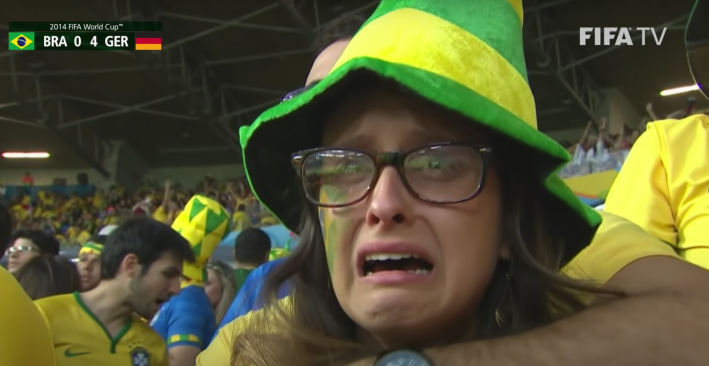
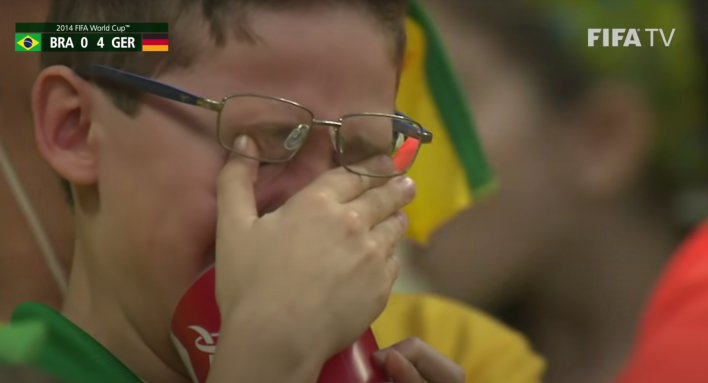
How Can They Win The World Cup?
Maybe Germany has simply lost the ability to win an international tournament without humiliating a strong opponent with a rich soccer history along the way. If that's the case, then we'll know pretty early on whether or not Germany is a real threat to win the 2022 World Cup. A 1–1 draw against Spain in the second game of the group stage will spell certain doom, but a shocking 5–1 blowout? Well then that's the whole tournament in the bag.
